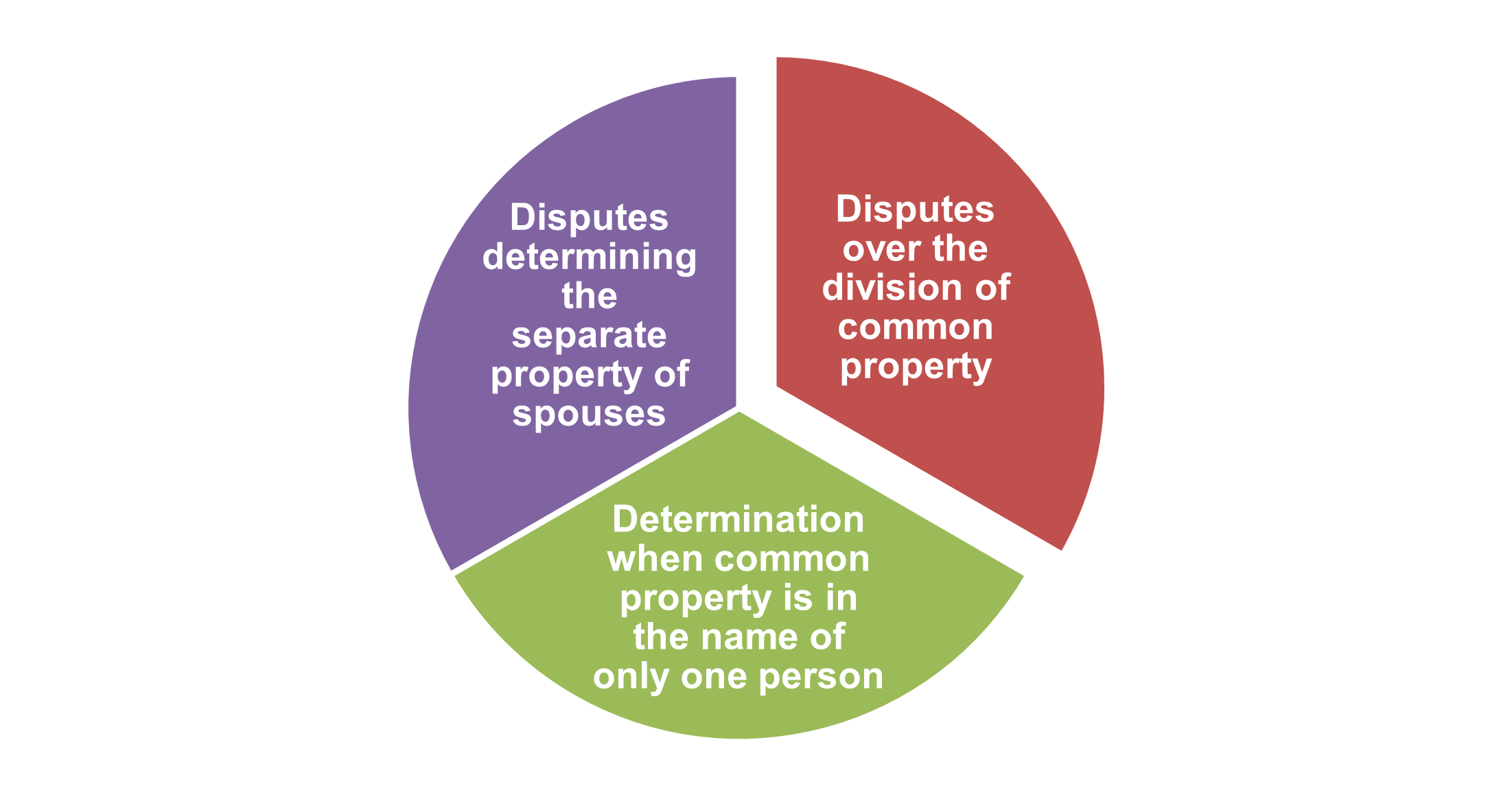Legal consequences of being unable to identify the common and separate property of a spouse
Many couples struggle to determine separate and common property during their marriage because they do not know how to do it or are unsure how to do it. This is also a contributing factor in property disputes, and result in a long-term impact on the marriage. The information that follows will help you learn more about this topic.
1. What is the common property of husband and wife?
According to current regulations, the husband and wife’s common property includes:
- Property created by a spouse, income generated from labor, production, and business activities, yields and profits earned from separate property and other legal income during the marriage period; property jointly inherited by or given to both, and other property agreed upon by husband and wife as common property.
- Land use rights obtained by a spouse after marriage are the common property of husband and wife. The land use rights obtained prior to marriage and inherited separately are only common property when agreed upon by both husband and wife.
- For a common property which is required by law to be registered for ownership or use, both spouses must be named on the ownership or use rights certificate, unless otherwise agreed upon by the couple.
2. What is separate property of husband and wife?
According to current regulations, the husband and wife’s common property includes:
- Property owned by this person prior to marriage;
- Property inherited by or given separately to him/her during the marriage period;
- Property divided to him/her under provisions of law;
- Property to meet his/her essential needs and other property under his/her ownership as prescribed by law.
3. The legal consequences of not being able to identify the common and separate property of husband and wife
Determining the husband and wife’s common and separate property from the start of the marriage will go a long way toward reducing disputes.
One of the most problematic aspects of divorce is property issues. Some types of separate property owned by spouses that existed prior to marriage but were used for business, investments, or daily life activities after the marriage and were not explicitly defined can lead to serious disputes. Common types of property disputes include:

- 3.1. Disputes determining the separate property of spouses
An individual party is required to provide evidence for any properties he/she claims to be his/her own. In a dispute over separate property, the plaintiff must provide evidence to show that the property is actually his or hers; otherwise, it is and will be treated as common property and divided in accordance with the general rule.
- 3.2. Disputes over the division of common property
In principle, the property of the husband and wife will be divided in half, but the Court will take into account both the husband and wife’s contributions as well as the fault of each party in failing to comply with the rights and obligations of the wife and husband to divide the property. In order for the Court to have a basis for a fair and reasonable asset division, the parties must show how much work was put into creating the property and how the infringer is at fault.
- 3.3. Determination of common property in the name of an individual
If the property is only registered in the name of one individual and there is no evidence that it is separate property, then the property is regarded by law as common property. In many cases, the spouses do not include the property inherited by or given into the common property; yet, because they are unable to provide evidence to the contrary, the property is still considered common property and must be divided under any disagreement.
This content is relevant to the legal consequences of being unable to identify the common and the separate property of husband and wife. Please contact us for thorough assistance relative to any associated issues via the following hotline: +84 916-545-618 or send an email to hung.le@cnccounsel.com and thanh.tran@cnccounsel.com.






